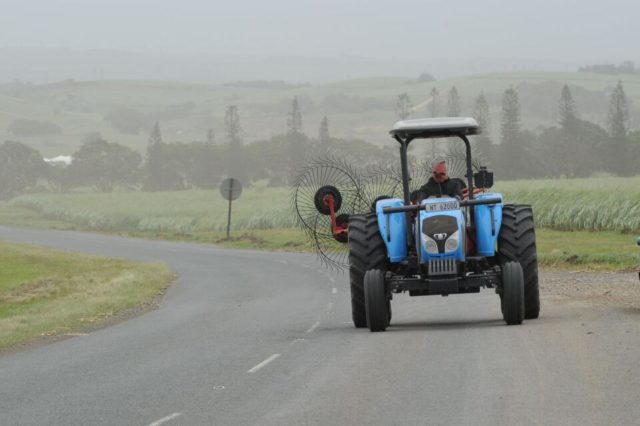Agri SA says deteriorating road infrastructure is a threat to food security as it also damaged food producer equipment, ranging from engine and trailer damage to shorter vehicle lifespan and accidents.
DETERIORATING road infrastructure is creating operational challenges for South African farmers and constitutes a threat to food security, agricultural organisation Agri SA said, as it called on the government to address the issue.
Agri SA, announcing the findings of a survey of participants in the agricultural sector determining the impact of deteriorating road infrastructure on the sector, found that there were dire consequences to South Africa’s poor road maintenance for the proper functioning and growth of the sector.
Kulani Siweya, an economist at Agri SA, said the deteriorating road infrastructure constrained the local sector’s potential to contribute more to South Africa’s gross domestic product (GDP) and employment.
While the sector already contributed R128 billion to GDP, this could be even higher, he said.
“This potential is illustrated by the fact that it was one of the few sectors to increase employment in the latest Quarterly Labour Force Statistics. But this potential cannot be fulfilled without determined and urgent action to address the problem of transportation infrastructure,” Siweya said.
Agri SA said that it would be sharing this data with the Presidency and the Investment and Infrastructure Office within the Presidency, and called on the government to join with the sector in addressing these issues.
The survey revealed that participating farmers relied on road transportation to move an average of 94 percent of their produce. On average, participants transported an estimated R23-million worth of agricultural produce by road in the last financial year, for a combined total of more than R7.1bn.
Some 13 percent of the respondents relied on road transportation weekly, while more than 87 percent relied on roads daily. Agri SA said this explained why 69 percent of the respondents had at some point attempted to fix affected roads themselves.
This had led to participants on average incurring repair and other related costs of more than R200,000 per participant. While this might be affordable for the biggest sector players, it was untenable for South Africa’s small-scale farmers, Agri SA said.
All but two respondents said that they experienced operational challenges because of the state of the country’s roads, with an estimated average of 16 percent in turnover losses during the last financial year.
The survey included participants from the five worst-affected provinces, with 19 percent in horticulture, 30 percent in agronomy, and 51 percent in animal production.
Siweya said the consequences of the challenges related to deteriorating roads were varied and costly for South Africa’s food producers.
The costs they incurred ranged from engine and trailer damage to shorter vehicle lifespan and accidents. These increased transport and maintenance costs, ultimately affecting the price that consumers pay for food.
Agri SA said the survey demonstrated the resilience and dedication of farmers who have continued to outperform the broader economy despite such immense challenges.
“Amid rising input costs, the nation’s food producers have persisted, even at immense personal cost, but this is unsustainable. Agri SA therefore stands ready to co-operate with government to ensure that we give our farmers the best chance of success, and in the process ensure the future food security of South Africa.”
Meanwhile, TLU SA general manager Bennie van Zyl said the organisation was concerned about the condition of the country’s roads, which posed a risk to food security.
TLU said there were even transport contractors who were refusing to use certain roads due to their bad condition, while other contractors had increased their tariffs if they had to make deliveries or transport food to or from farmers with the only access being via neglected roads.
“Farming input costs are already very high, and this is even before the monthly fuel price increase is considered. Farmers and agriculture simply cannot afford another onslaught – like the national road conditions – in our effort to provide quality food to the people at affordable prices. The government must now come to the table and at all levels pay attention. We have a crisis on our hands,” said Van Zyl.
– BUSINESS REPORT








